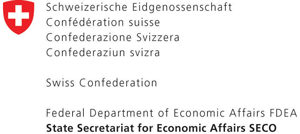Public Finance Management
Helping public institutions manage resources transparently and effectively
Effective, efficient and transparent public financial management is key to preventing corruption and other forms of misuse of public assets.
In Peru, where public expenditure is highly decentralised, the Basel Institute's Lima office is implementing a programme to strengthen Public Finance Management (PFM) in 11 regions and municipalities. The aim is to enhance the capacity of authorities to plan, implement and execute budgets and to increase standards of integrity and transparency in doing so.
Signed in 2015 by the Peruvian and Swiss governments, the programme is funded by the Swiss State Secretariat for Economic Affairs (SECO). It was renewed in 2023 for third four-year term (2024–2028).
The main website for the programme (in Spanish) is: gfpsubnacional.pe. Download a factsheet in Spanish or English.
News
What is public finance management?
Public finance management is the administration of funds used to deliver public services like education, healthcare and infrastructure.
Sound and transparent management of public finances requires sound and transparent legislative, regulatory and policy frameworks, as well as their enforcement. The proper management of public finances promotes accountability and increases the credibility of the public administration for stakeholders.
Ultimately, robust and transparent public finance management is essential to achieving development goals.
Programme goals and impact
Phase 3 of the programme started in 2024, following a successful phase 1 (2015–2019) and phase 2 (2020–2023).
From 2024–2028, the programme will build on its previous achievements in strengthening capacity in relation to procurement, budgeting and risk management processes. These include:
- Increased efficiency in the programming and execution of public investments, particularly in education and healthcare infrastructure.
- Strengthened internal controls and financial management systems at regional and local levels.
- Successful implementation of property tax management reforms, significantly boosting local revenue collection.
- Notable progress in asset recovery through Peru’s non-conviction based forfeiture law, Extinción de dominio. Drawing on the Basel Institute’s asset recovery expertise, this effort has led to the recovery of millions of dollars in misappropriated public funds and is helping to reduce impunity for corruption.
The third phase of the programme will continue strengthening these areas, incorporating new strategies and adapting to changing circumstances.
It will also add a special focus on the monitoring and surveillance of regional conservation areas, including through the use of innovative technologies.
View a video about the programme's achievements:
Partners and beneficiaries
The regional government of Loreto and municipality of Maynas joined the programme’s 11 existing beneficiaries in 2024: the municipalities of Abancay, Cusco, Piura, San Martín (Tarapoto) and Trujillo, as well as the regional governments of Apurímac, Cusco, La Libertad, Lambayeque, Piura and San Martín.
Watch testimonials from our beneficiaries:
The programme will also continue close coordination with relevant state institutions, including the Public Integrity Secretariat, Ministry of Economy and other relevant Ministries such as health and education, government environmental agencies, prosecutors’ offices and the judiciary.
Why Peru?
The strong performance of the Peruvian economy in recent years opens up greater opportunities to ensure that citizens enjoy quality public goods and services. This is especially important in the key areas of health, education, water and sanitation, as well as infrastructure to facilitate access to markets.
Our ultimate aims are to promote economic development and social inclusion, reduce poverty and cultivate greater trust in Peru’s governance and public institutions.



